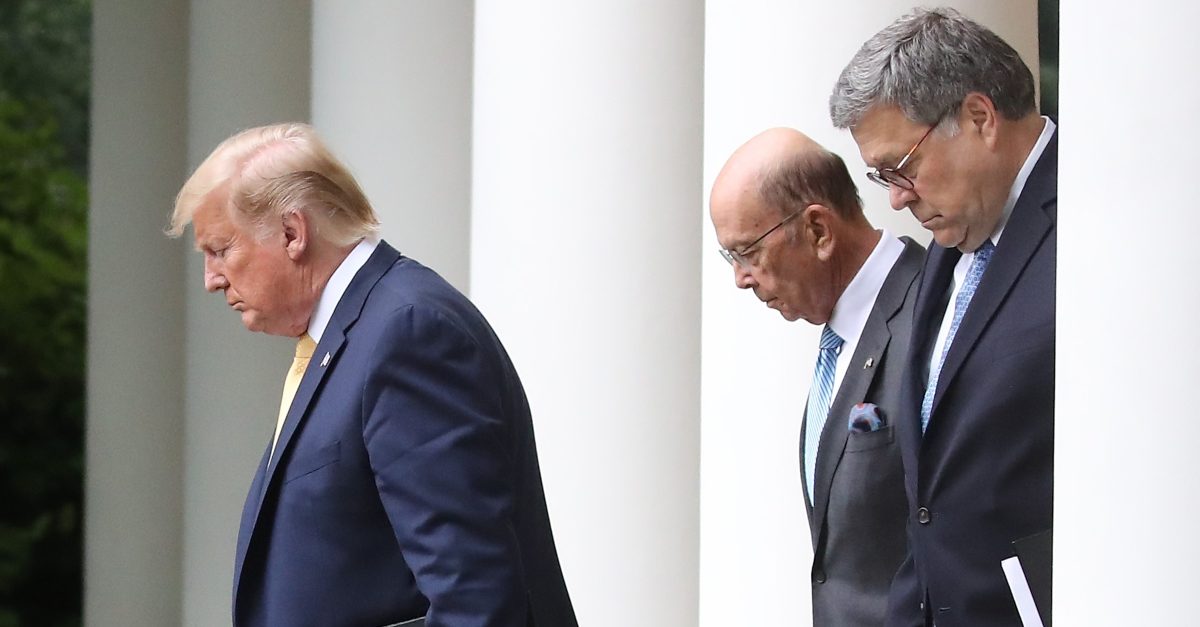
In a lawsuit filed by the State of New York, the U.S. Department of Justice on Saturday morning denied allegations that the Trump Administration engaged in delay tactics during litigation surrounding a citizenship question on the 2020 U.S. Census. Ironically and problematically, the DOJ filed its denial of delay tactics some four and a half hours after a deadline drawn by a federal judge.
(Note:
Because of the — ahem — “delay” — the federal government also filed a letter with the judge requesting a post-facto four-hour and 30-minute deadline extension, saying DOJ attorneys were unable to file on time “despite [their] best efforts.” The request for the extension makes clear that federal and local court rules do not favor extensions, but begs for mercy anyways.
The litigation stems from the Trump Administration’s attempt to add the citizenship question to the 2020 U.S. Census. The United States Supreme Court struck down the question in June, ruling that the government’s stated reasons for adding the question were “contrived” and contrary to the government’s own analysis. The Trump Administration originally argued that adding the citizenship question would help with enforcement of the Voting Rights Act by further ensuring minority voters were able to exercise their right to vote despite contradictory evidence from the Census Bureau.
Following the U.S. Supreme Court’s ruling, New York State asked federal judge Jesse Furman for two things: (1) new discovery into the administration’s alleged misconduct, and (2) monetary sanctions for the federal government’s “concerted campaign of delay and obfuscation” during last year’s trial. According to New York’s motion to re-open discovery and impose sanctions, the federal government knowingly provided “false or misleading” testimony thereby committing “fraud on the court.”
“The misconduct was intentional. This is clear from the pattern of Defendants using false and misleading statements and testimony to obstruct Plaintiffs’ from discovering evidence of their true, discriminatory motive,” the motion alleged.
“Defendants’ misconduct was not isolated. It started at the very outset of the case, includes multiple acts of false and misleading statements delivered in testimony, court filings, and communications to Plaintiffs,” attorneys wrote in the motion. “Indeed, Defendants’ misconduct continues through the present day as Defendants have never attempted to correct the record and continue to deny the existence of any misstatement of fact.”
Although a few hours late, the federal government’s latest court filing strongly challenged New York’s allegations, which the DOJ deemed as “baseless.”
“Plaintiffs now seek sanctions against the Government based on a web of speculation that is no more plausible, credible, or grounded in actual evidence than the theories they offered in their original sanctions motion several months ago,” the U.S. DOJ argued.
“Far from advancing a clear case of Government misconduct, Plaintiffs’ motion traffics in speculation and innuendo, accompanied by a series of mischaracterizations of what the record actually shows.”
The federal government also disregarded any notion that Trump Administration officials had engaged in a concerted effort to withhold the truth from the court.
“Plaintiffs’ assertion of a broad inter-agency conspiracy — involving countless public officials in multiple components of different federal agencies — to withhold evidence, frustrate discovery, and mislead the Court in these proceedings, is baseless. Defendants vigorously contested Plaintiffs’ claims during the course of the litigation, but they did so ethically and appropriately,” the federal government wrote.
[Image via Mark Wilson/Getty Images.]
Have a tip we should know? [email protected]